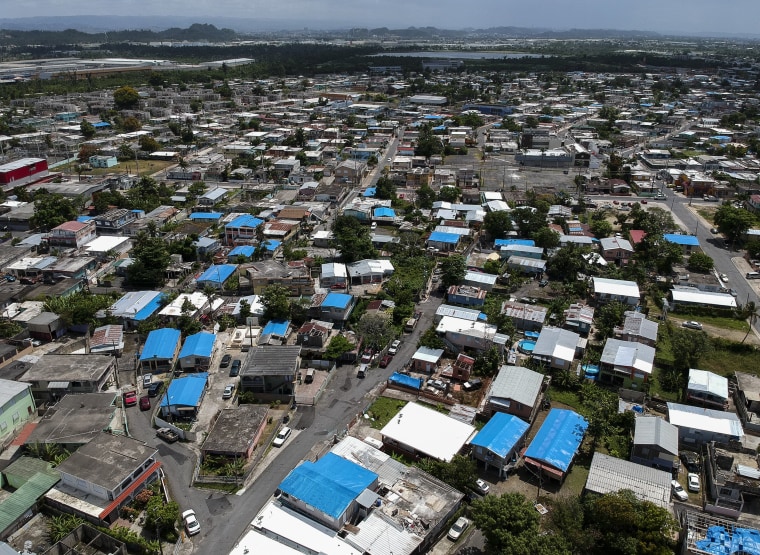Puerto Rico will have to wait until May for Congress to resume discussions over disaster relief funding, deepening a growing uncertainty over hurricane recovery efforts.
“These funds are very critical for our plans to achieve full recovery and achieve certain goals associated with housing infrastructure and economic development programs,” Manuel Laboy Rivera, Puerto Rico’s secretary of economic development, told NBC News. “After this devastation that happened in 2017 [Hurricanes Maria and Irma], Puerto Rico should be in the right path for long term recovery and the funds associated with that, as any other U.S. jurisdiction, should be addressed with a greater sense of urgency.”
Lawmakers failed to pass legislation to provide disaster relief funds to areas affected by hurricanes, wildfires and other natural disasters before leaving for a two-week recess.
“Congress should have already passed a desperately-needed disaster aid package instead of delaying action,” said Erica González, director of the advocacy group Power 4 Puerto Rico, in a statement. “Nutritional assistance and resiliency support are a matter of life and death for so many Puerto Ricans on the island.”
Marion Mollegen McFadden, senior vice president for public policy and a senior adviser for resilience at Enterprise Community Partners, explained that communities tend to face deep recovery challenges if they don’t know when relief funds will start to flow. It especially hinders processes to develop efficient recovery plans.
“Right now, nobody knows when the money is going to come, or if they will be able to use it,” McFadden told NBC. “As weeks turn into months… frustration grows. Homes that have been damaged and not repaired become more deteriorated.”
The latest funding delay comes as the island continues to be at the center of a showdown between Congress and the White House over how much money Puerto Rico should receive for recovery.
Various disaster aid bills and amendments failed to pass the Senate this month as President Donald Trump repeatedly doubled down on his opposition to granting Puerto Rico further federal recovery funds, a move that deepened divides between Republicans and Democrats.
Senate Republicans wanted to provide enough money to finance a $600 million food assistance program in Puerto Rico and $5 million for a study on the impact of emergency aid after the hurricane, while also making sure that southern hurricane-hit states such as Florida, Georgia and North Carolina, as well as Midwestern states such as Iowa and Nebraska suffering from floods had access to more aid.
While Senate Democrats agreed on adding aid to other states, they countered that Puerto Rico was not getting enough money to address its needs.
Democrats wanted to also provide funds for additional projects on the island such as FEMA reimbursements to local government entities who spent money doing emergency-related work; as well as $25 million to restore the Caño Martín Peña, a body of water that stretches alongside the San Juan Bay area and is surrounded by low-income communities that were hit hard by Maria.
“What do we say to them [Republicans and Trump]? You’re not getting a nickel for anywhere else until Puerto Rico is fully funded … Next time I see you, I hope I can say that we got the aid for the rest of America but that we also got the same amount for 3 million American citizens who live in the island of Puerto Rico,” said Senate minority leader Chuck Schumer, D-N.Y., during a gala event Thursday night.
According to Elizabeth Kellar, director of public policy and deputy executive director at the International City/County Management Association, the best role government can have during a recovery period is “as a convener, [bringing] together groups across sectors” — including private entities, philanthropy and others — to strategize on efforts.
“It’s going to take a very long time to recover and people are going to get impatient… that’s why leaders need to step up and clearly address progress in a realistic, holistic way,” Kellar told NBC.
Before leaving for a two-week recess, Rep. Nita Lowey, D-N.Y., introduced a $17.2 billion emergency supplemental bill to support Puerto Rico and the floods in the Midwest. Lawmakers will most likely vote on the legislation after congressional sessions resume on April 29.
FOLLOW NBC LATINO ON FACEBOOK, TWITTER AND INSTAGRAM.


